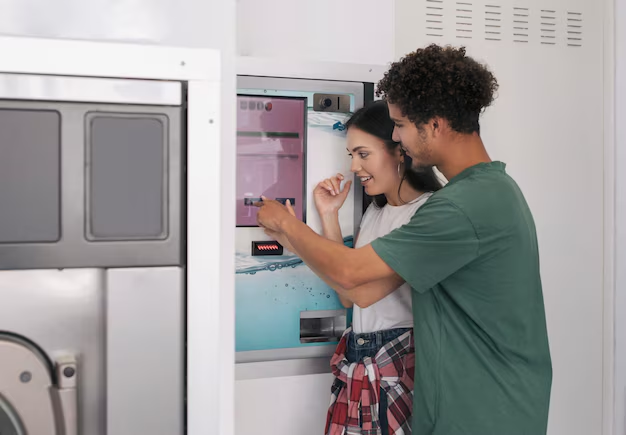Understanding the Impact of Refrigerator Gas: Is It Harmful?
In recent years, discussions about the environmental and health impacts of household appliances have become more prominent. One topic of interest is the refrigerant gases used in refrigerators, which play a critical role in their cooling function. As you peer into your fridge for a midnight snack, do you ever wonder, “Is refrigerator gas harmful?” Let's dive into this topic, exploring the types of gases used, their potential effects on health and the environment, and best practices for safe refrigerator management.
Exploring the Types of Refrigerator Gases
The Evolution of Refrigerant Gases
Refrigerators have gone through various technological changes, especially when it comes to the gases used for cooling. Originally, substances like ammonia and sulfur dioxide were common in early refrigeration systems. These substances, while effective, posed significant health risks.
Transition to Freon:
- Freon (CFC-12) became popular in the mid-20th century. This chlorofluorocarbon (CFC) was initially celebrated for its stability and non-flammable nature. However, its effect on the ozone layer later raised alarms.
Shift to HFCs:
- Hydrofluorocarbons (HFCs) replaced CFCs as they did not contribute to ozone depletion. Despite being ozone-friendly, HFCs are powerful greenhouse gases and contribute to global warming.
Current Use of Hydrocarbons:
- Modern refrigerators often use hydrocarbons (like isobutane, R-600a), which have a lower global warming potential (GWP) and are more environmentally friendly.
Key Takeaway:
Refrigerant technology has evolved from CFCs to more environmentally conscious alternatives like HFCs and hydrocarbons, each with unique impacts on health and the environment.
Health Risks Associated with Refrigerator Gases
Direct Exposure and Health Implications
Minimal Risk in Normal Use:
- Under normal conditions, the risks posed by refrigerator gases to health are minimal. Refrigerant gases are typically contained within a sealed system and aren't exposed to users during typical operation.
Risks of Exposure:
- If a leak occurs, certain refrigerants could pose health risks. Inhalation of refrigerant gases, particularly in confined spaces, could lead to symptoms such as dizziness, headache, or respiratory irritation.
Safe Handling and Usage Tips
- Avoid tampering with the refrigeration system, as improper handling can lead to leaks.
- Ensure proper maintenance of the refrigerator, checking for any unusual odors or performance issues.
- Dispose of old refrigerators responsibly to prevent refrigerant leakage.
Key Takeaway:
While refrigerator gases aren't typically harmful under normal conditions, potential leaks can pose health risks. Regular maintenance and responsible use are critical for safety.
Environmental Impact of Refrigerants
Global Warming and Ozone Depletion
Ozone-Depleting Substances (ODS):
- Older refrigerants, such as Freon (CFCs), have been proven to harm the ozone layer, contributing to ozone depletion.
Role in Global Warming:
- HFCs, while not harmful to the ozone layer, are powerful greenhouse gases and have a significant impact on global warming potential (GWP).
Modern Environmental Concerns
Sustainable Alternatives:
- Today's focus is on developing refrigerants with low GWP, such as hydrocarbons, which offer effective cooling with reduced environmental impact.
Legislative Measures:
- Various countries are implementing regulations to phase out high GWP refrigerants and promote eco-friendly alternatives.
Key Takeaway:
The shift to environmentally friendly refrigerants helps mitigate the negative environmental impacts of refrigeration technology, reflecting a global commitment to sustainability.
Meeting Safety Standards with Refrigerants
Regulatory Overview
Compliance with Safety Protocols:
- Refrigerants must meet specific safety and environmental regulations to be approved for use. This includes standards set by governmental and environmental organizations worldwide.
Recent Standards and Guidelines:
- Agencies continuously update standards to ensure refrigerants are safe for both human health and the environment. This includes monitoring potential refrigerant leaks and proper disposal methods.
How Consumers Can Ensure Compliance
- Choose appliances from reputable manufacturers who adhere to international safety standards.
- Stay informed about the latest regulations and best practices in refrigerator maintenance and disposal.
- When disposing of an old appliance, ensure it's done through certified recycling programs to handle refrigerants responsibly.
Key Takeaway:
Regulatory compliance is crucial to ensure the safety and environmental impact of refrigerator gases. Consumers play a role by selecting trusted products and adhering to responsible disposal practices.
Practical Tips for Refrigerator Use and Maintenance
Ensuring Proper Function
- Routine Checks: Regularly inspect the refrigerator for any signs of mechanical failure or gas leaks.
- Professional Servicing: Engage professional technicians for routine maintenance and repairs to ensure systems function correctly and there are no leaks.
Eco-Friendly Practices
- Energy Efficiency: Opt for energy-efficient models that use eco-friendly refrigerants to reduce carbon footprint.
- Responsible Disposal: Dispose of outdated models through certified programs that safely reclaim refrigerants.
Reducing Environmental Impact
- Monitor the energy consumption of your refrigerator. Opt for energy star-rated appliances that promote sustainability.
- Minimize waste by keeping your appliance in good condition, reducing the need for replacements.
Key Takeaway:
Regular maintenance and energy-efficient practices not only enhance the longevity of your refrigerator but also minimize health risks and environmental impacts.
Visually Distinct Summary Section
Quick Tips for Safe and Sustainable Refrigerator Use:
- 🔧 Maintenance is Key: Regularly check your refrigerator for leaks or unusual odors. Schedule annual professional inspections.
- 🌍 Eco-conscious Choices: Opt for energy-efficient and eco-friendly models using hydrocarbon refrigerants.
- 🗑️ Responsible Disposal: Use certified recycling services for disposing of old refrigerators, ensuring safe gas reclamation.
- ⚠️ Stay Informed: Keep up with the latest refrigerator regulations and choose appliances that meet safety standards.
Final Thoughts on Refrigerator Gases
Understanding the intricacies of refrigerator gases is essential both from a health perspective and an environmental standpoint. As technology advances, it is imperative to stay informed about the types of refrigerants in use and their impact. By choosing environmentally friendly models, maintaining appliances well, and disposing of them responsibly, consumers can mitigate potential risks and contribute to a more sustainable planet. Your home can stay cool, safe, and environmentally responsible with smart choices and informed action.

